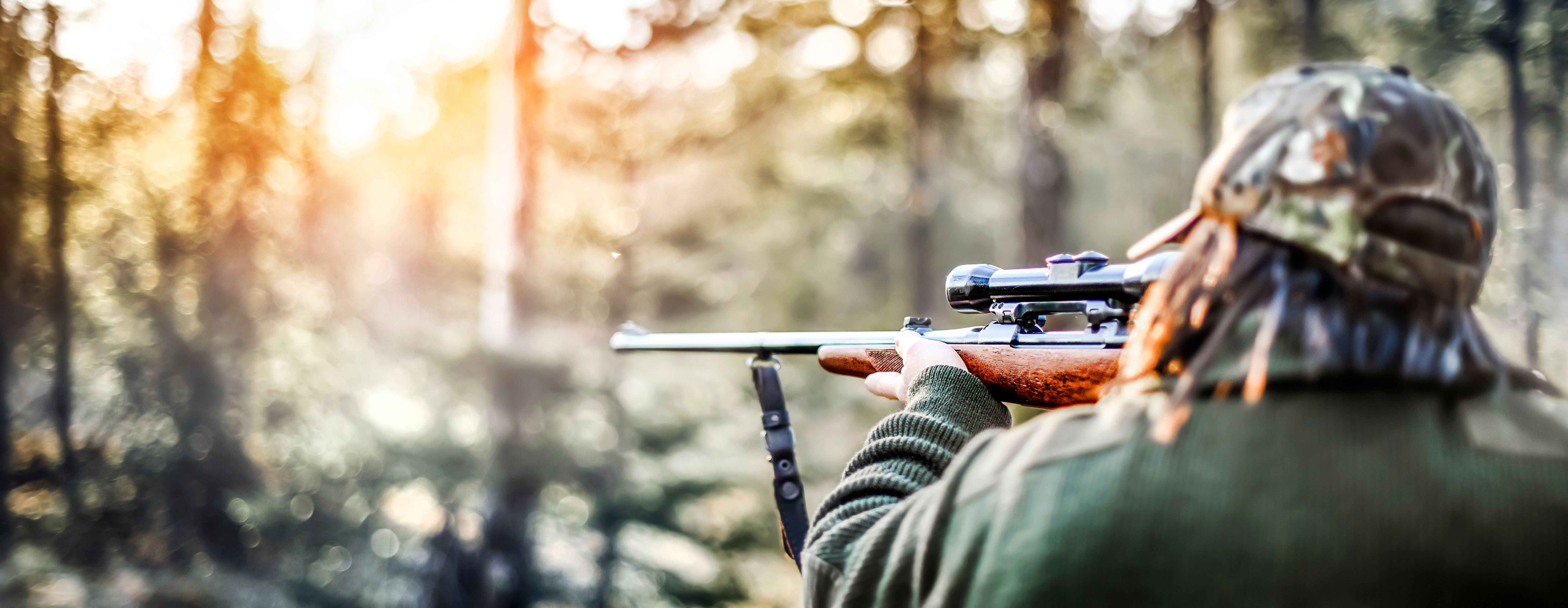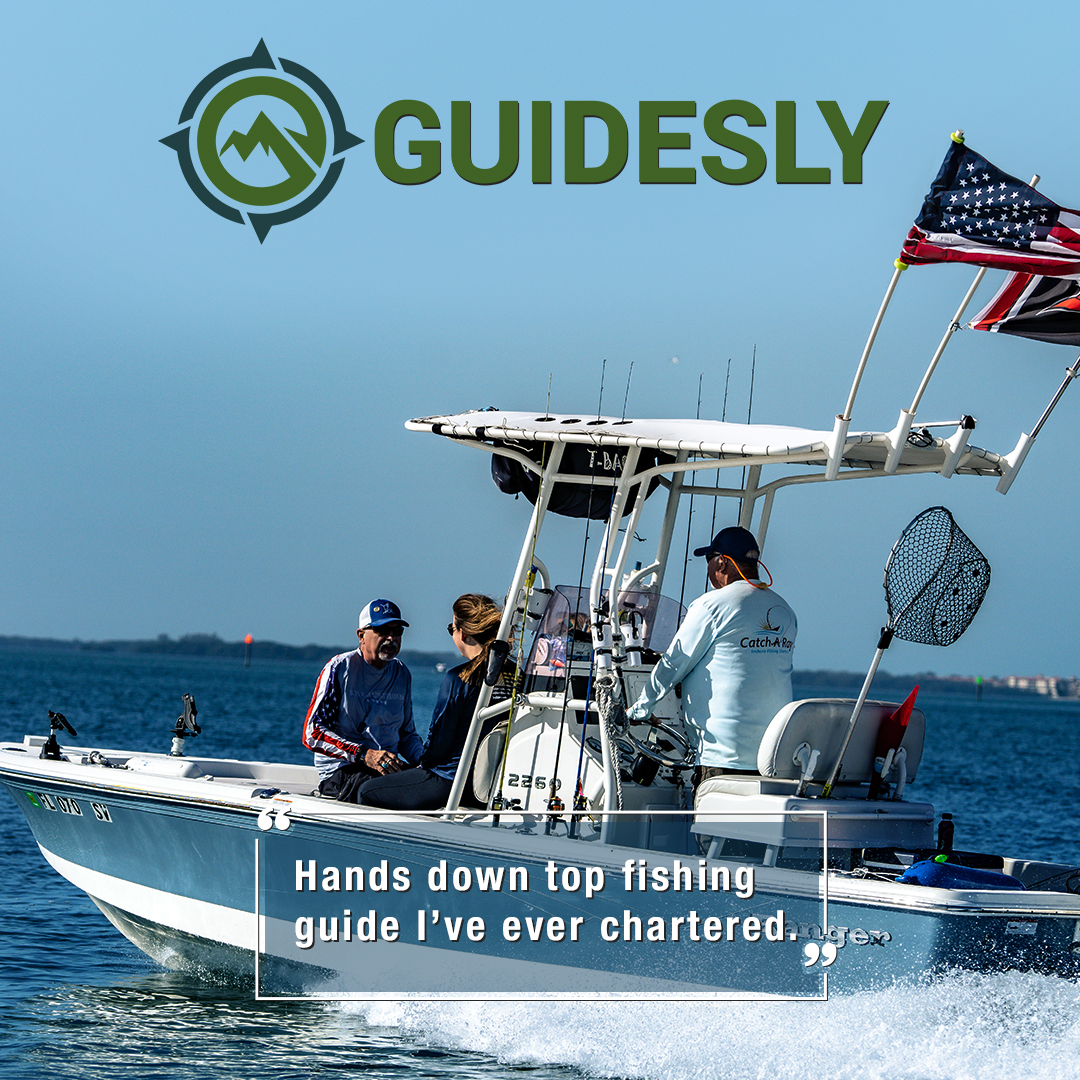What Is a Hunting Guide?
A hunting guide is an experienced professional who provides services and expertise to assist hunters in their pursuit of game.

With over 14 million hunters in the US, with the majority pursuing Deer for food, there is a demand for hunting guides whether it be to help improve hunting skills or fill the freezer. Hunting guides are specially trained and certified individuals who help hunters navigate areas and pursue game to harvest. They accompany their guests to select hunting locations which can range from dense forests, open plains, waterways, mountainous, agricultural fields, and more. The hunting guides are knowledgeable about the animal’s behavior and local terrain. Guides can either pursue an animal through tracking, scoping, utilizing hunting dogs, and more or set up in a spot using natural cover, a tree stand, hunting blind, a boat, etc., and call the prey in. Depending on the client and the type of animal being hunted, a guide can take on either a hands-on or restrictive approach. With the hands-on approach, a guide will actively assist the client in tracking and pursuing the target game, while those with a more restrictive approach will go as far as setting up a blind and providing the client with direction only.
Hunting guides have decades of experience in the field and must be knowledgeable of the local wildlife and rules regarding hunting. To put themselves and their guests in the best position possible for a legal and successful hunt they must understand the habits of the animal being hunted and be prepared to adapt should the situation change. Furthermore, they must be able to provide guidance on the best approach, equipment, and navigation for the hunt, provide basic first aid, and ensure the safety of their client.
The Profession of Hunting Guide
Being a hunting guide is a career that requires passion, dedication, and a strong understanding of nature. Guides are professional hunters who are typically employed by a game lodge, guide service, or independent clients. They are expected to provide a safe and successful hunting experience while providing respect for the laws and regulations in place. The job description of a hunting guide often includes, but is not limited to, the following tasks:

- Select and scout hunting spots for the client
- Instruct clients on proper techniques for hunting and safety regulations
- Locate the targeted game, track them, and provide insight into the animal’s behavior
- Guide guests in and out of hunting locations
- Provide basic first aid as needed
- Ensure the safety of all members of the hunting party
- Manage the hunting equipment and ensure it is properly maintained
The Educational Requirements for Becoming a Hunting Guide
Because the profession of hunting guide requires extensive experience and knowledge of animal behavior, most guides have advanced degrees in wildlife management or related fields. An undergraduate degree in one of these disciplines is also acceptable for individuals who have experience in the field or who are looking for entry-level positions. In addition to a degree, many guides also have professional certifications from entities such as the National Association of Professional Hunting Guides (NAPG). Certifications are typically not required for employment but can help establish credibility in the field.
The Benefits of Being a Hunting Guide
Hunting guides gain a lot of personal satisfaction from helping clients bring home successful hunts. Being able to help a guest harvest an animal that will feed their family is very satisfying along with the opportunity to be a big part of a client harvesting their personal best or first hunting experience. Additionally, they have the opportunity to work in some of the most beautiful settings and with some of the most interesting wildlife. Social interaction with clients is also a common benefit of the job. Since many hunting trips involve multiple participants, there can be significant interactions between the guide and the hunting party. Not only does this create an enjoyable atmosphere for the job, it also builds relationships and trust between the hunter and the guide. Spending significant time in the wilderness whether over several hours or several days with a small group with nothing but Mother Nature lends itself to interesting conversations that can be a challenge to replicate in many social settings. Providing exceptional service, even when a hunt may not be successful, while on a guided hunt is paramount as it will influence repeat trips booked.
The Challenges of Being a Hunting Guide
The job of a hunting guide has some challenging elements that those seeking the profession should consider. First, the nature of the job requires physical and mental endurance. As mentioned earlier, hunting trips can last anywhere from a few hours to multiple weeks. Under such conditions, individuals may need to be able to respond quickly in dangerous situations as well as have patience for long periods without moving, having to be silent, or long treks covering long distances and altitude changes.
In addition, the profession of hunting guide will inevitably entail unpredictable weather conditions, long hours, and overnight stays in the wilderness or lodgings far from home. Guides must also understand the laws and regulations regarding their chosen game and any necessary licenses and certifications that must be acquired. Understanding where private and public lands intersect, and how to navigate around un-huntable locations is extremely important in many areas of the country as well. A hunting guide should also be comfortable carrying a firearm, keeping your guests safe and providing first aid in remote locations, should the situation arise.
The Job Outlook for Hunting Guides
The career outlook for hunting guides is rather positive within certain areas. The Bureau of Labor Statistics found that the employment of hunters and trappers hired by fishing and hunting services grew 6 percent between 2019 and 2022. Currently, the expected job outlook is described as “bright” due to economic changes resulting from the global recession. Such changes have caused people to become more focused on the outdoors and activities such as hunting, which has led to an increase in demand for guides and services to support those activities. Despite this growth, the overall number of jobs is expected to remain small due to reduced government grants for wildlife monitoring, as well as fewer people enrolling in wildlife management or related programs.

Becoming a hunting guide is a unique job that requires the right combination of knowledge, experience, and dedication. Not only must a successful guide be knowledgeable about the local terrain and game, but also be able to provide clear direction and guidance for the hunting party. Additionally, the profession requires physical and mental endurance to work in difficult and unpredictable situations. Despite the unique challenges, the job provides some excellent benefits including competitive income, social interaction and networking with clients, and the opportunity to work in some of the most beautiful settings in the world. Hunting guide is a career worth considering if you have a passion for and in-depth knowledge of hunting and are willing to apply the work necessary to become an expert in the hunting field. You must also complete all necessary certifications, which can be extremely challenging.




